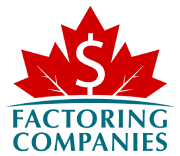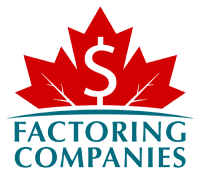
Financial planning for entrepreneurs can initially seem complicated between business and personal needs. However, reaching your goals is much easier when you separate the two and apply the right strategic measures. Below, we’ll walk you through how to get started and give you tips to boost your success.
Benefits of Financial Planning for Entrepreneurs
You may know that financial planning is essential, but understanding why it’s important can help put you in the right mindset and motivate you.
You’ll Understand Your Financial Situation Better
Two-thirds of small business owners say they wish they knew more about their financial situation, Intuit surveys show. One of the best ways to improve your knowledge is to work with your numbers firsthand.
You Can Reduce Risk
Financial planning allows you to identify potential issues before they become a problem so you can proactively address any concerns.
You’ll Likely Save More Money
People are forced to make difficult decisions quickly when blindsided by emergencies. Unfortunately, this often means taking out expensive loans that could have otherwise been avoided.
You’re More Likely to Reach Your Goals
Every step you take, from writing down your goals to planning how to reach them, increases your odds of achieving them.
Personal Financial Planning

You have unique concerns as an entrepreneur. It’s crucial to develop a financial plan that addresses things others might rely on an employer for and minimize the financial risks business owners face.
Split Your Finances
Many entrepreneurs fund their businesses with their own cash. It’s also common for business owners to take payments as funds become available rather than paying themselves a salary. Because of this, many have bank accounts and credit cards that are used for both business and personal needs. While this is understandable, it makes it difficult to track expenses properly, can create tax issues, and may put your personal assets at risk.
Split your business and personal finances if you haven’t done so already. Begin paying yourself some type of salary, too. Even if it’s modest to start, and you decide to loan your business more money later, it will help create a clear financial trail.
Establish Personal Financial Goals
Develop both short-term and long-term financial goals for yourself. While we’ll address many areas below, some things you might want to consider include:
- Creating a budget
- Earning more money
- Building an emergency fund
- Buying a home
- Saving for retirement
- Paying off debt
- Building better credit
- Planning for vacation or other recreational activities
Invest in Yourself
Your business success depends on you, so invest in yourself. Allocate resources for things like continuing education, insurance, and wellness to ensure you can perform well.
Use Debt Strategically
There are times when loans can be a helpful tool. For instance, the mortgage on your home provides you with a place to live, allows you to build equity, and can help boost your credit score. However, certain types of debt, such as credit card debt, are often detrimental. They don’t help create wealth, can be challenging to pay off, and are an expensive way to obtain funding. Before taking on any debt, consider whether it will help you reach your goals or hold you back. If you’re already struggling with debt, do your best to pay it off quickly.
Build an Emergency Fund
As a general rule of thumb, most people will want to set aside three to six months of regular expenses or income as an emergency fund.
Invest and Save for Retirement
An average Canadian couple needs at least $1,211,325 in retirement savings to live comfortably for 25 years, Motley Fool reports.
If you’re trying to determine how much you should save, you can also calculate your ideal retirement savings with the 70 percent rule. That means setting aside 70 percent of your annual salary for each year you plan to be out of the workforce. For instance, if you’re planning for 30 years and bring in $500,000 annually now, the equation is $500,000 x 0.7 x 30 = $10,500,000. You would want $10.5 million set aside for retirement to maintain your current lifestyle.
Develop a Budget
Once you know your goals and how much you need to start funnelling toward debt and savings, develop a budget to ensure you spend your money on what matters most. It may be helpful to start “paying” your savings and investment accounts just like you do other bills on a weekly, semi-monthly, or monthly basis.
Minimize Tax Liabilities
Work with a tax specialist to ensure you’re maximizing your deductions and minimizing the total amount paid in taxes.
Be Prepared to Pivot
Audit your budget and goal progress monthly to ensure you’re on the right track. You will likely need to make minor changes as you go. For instance, you may find that your initial budget doesn’t provide enough wiggle room for regular expenses or that you can put more toward savings as your debts are paid. Regularly reviewing your finances will allow you to be proactive and maximize the available resources.
Business Financial Planning

While many of the steps involved in personal financial planning for entrepreneurs carry over into business financial planning, there are also business-specific steps to take.
Review or Create Your Strategic Plan
You may have already created a business plan that outlines how your business operates on a day-to-day basis and intends to make a profit. However, you should also create a strategic plan if you haven’t done so already. A strategic plan includes details about your company’s current status, future status, and your plans to reach your goals.
Components of a Strategic Plan
Although each one is unique, the core components of a strategic plan typically include:
- Executive summary
- Company description
- SWOT analysis (strengths, weaknesses, opportunities, and threats)
- Business goals
- Specific initiatives that will help you reach your goals over the next 12 months and key performance indicators (KPIs)
Questions a Strategic Plan Should Answer
A strategic plan is crucial to understanding your future financial needs, as you’ll likely have expenses related to expansion, equipment, staffing, and procuring additional resources. As you review your goals, ask yourself:
- How will my goals and strategic plan impact my cash flow?
- Will I need external funding? If so, how much will I need and when will I need it?
Develop Financial Projections
Gather key financial reports, including your income statement, also known as a profit and loss statement or P&L, cash flow statement, and balance sheet. Combined with your business knowledge and current industry trends, they can help you forecast sales and expenses.
Obtain Business Funding as Needed
Start reviewing your options early if funding is required to help your business reach its growth goals. This will give you time to shop around for the best rates and ensure you’re prepared when the need for funding arises. You may wish to explore:
- Business loans
- Lines of credit
- Commercial credit cards
- Equipment leasing and financing
- Insurance premium financing
- Payroll funding
Plan for Issues
Have a backup source of funding ready in case your primary source of financing falls through, you need additional capital, or you experience cash flow gaps as your business grows. An option like invoice factoring may be ideal because it’s flexible and pays out quickly. Rather than taking out a loan and incurring debt, factoring accelerates payment on your B2B invoices as needed.
Review Your Financial Reports Weekly
Make sure you set aside time each week to review your financial statements. It’s one of the most important things you can do for your company. Businesses that review their financial statements annually only succeed around 25 percent of the time, SBDC research shows. Comparatively, those who do so monthly boost their odds of success to 75 percent or more, and those who do so weekly have a 95 percent or greater success rate.
Bring in Expert Help as Needed
If you have questions or are unsure how to proceed, connect with a bookkeeper, accountant, or tax professional. Your factoring company may also be able to provide insights and solutions. Plus, many offer additional services, including collections and invoice preparation, that can free you from hours of work each week and allow you more time to focus on growing your business.
Get a Complimentary Factoring Rate Quote
We’re happy to match you with a factoring company that understands your industry and offers competitive rates. If you’d like to bridge cash flow gaps or have a backup funding source ready, request a complimentary factoring rate quote.

About Factoring Companies Canada
Related Articles
Get an instant factoring estimate
Factoring results estimation is based on the total dollar value of your invoices.
The actual rates may differ.
CLAIM YOUR FREE FACTORING QUOTE TODAY!
PREFER TO TALK?
You can reach us at
1-866-477-1778
Get an instant factoring estimate
Factoring results estimation is based on the total dollar value of your invoices.
The actual rates may differ.
CLAIM YOUR FREE FACTORING QUOTE TODAY!
PREFER TO TALK? You can reach us at 1-866-477-1778









